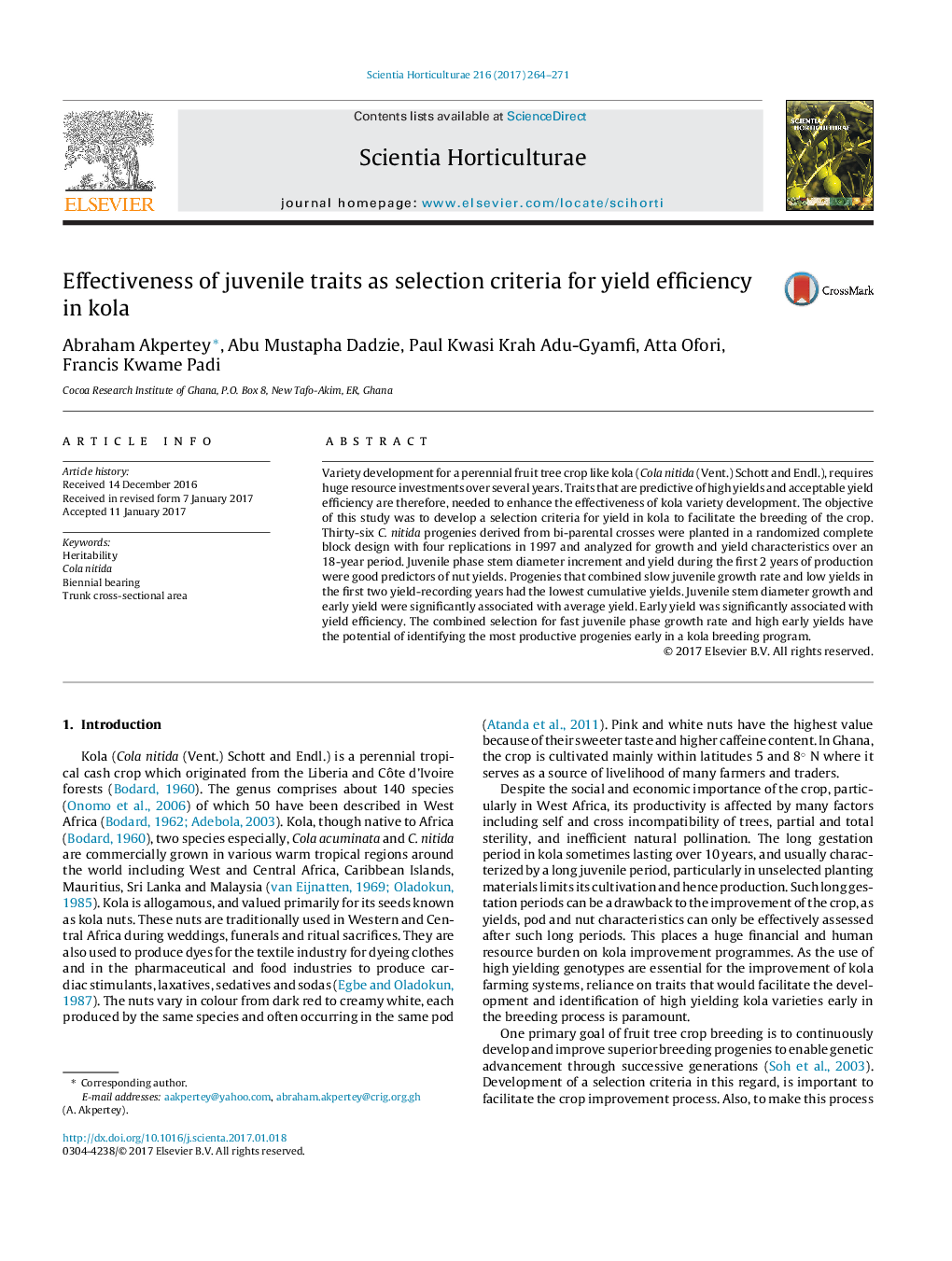| Article ID | Journal | Published Year | Pages | File Type |
|---|---|---|---|---|
| 5769778 | Scientia Horticulturae | 2017 | 8 Pages |
Abstract
Variety development for a perennial fruit tree crop like kola (Cola nitida (Vent.) Schott and Endl.), requires huge resource investments over several years. Traits that are predictive of high yields and acceptable yield efficiency are therefore, needed to enhance the effectiveness of kola variety development. The objective of this study was to develop a selection criteria for yield in kola to facilitate the breeding of the crop. Thirty-six C. nitida progenies derived from bi-parental crosses were planted in a randomized complete block design with four replications in 1997 and analyzed for growth and yield characteristics over an 18-year period. Juvenile phase stem diameter increment and yield during the first 2 years of production were good predictors of nut yields. Progenies that combined slow juvenile growth rate and low yields in the first two yield-recording years had the lowest cumulative yields. Juvenile stem diameter growth and early yield were significantly associated with average yield. Early yield was significantly associated with yield efficiency. The combined selection for fast juvenile phase growth rate and high early yields have the potential of identifying the most productive progenies early in a kola breeding program.
Related Topics
Life Sciences
Agricultural and Biological Sciences
Horticulture
Authors
Abraham Akpertey, Abu Mustapha Dadzie, Paul Kwasi Krah Adu-Gyamfi, Atta Ofori, Francis Kwame Padi,
